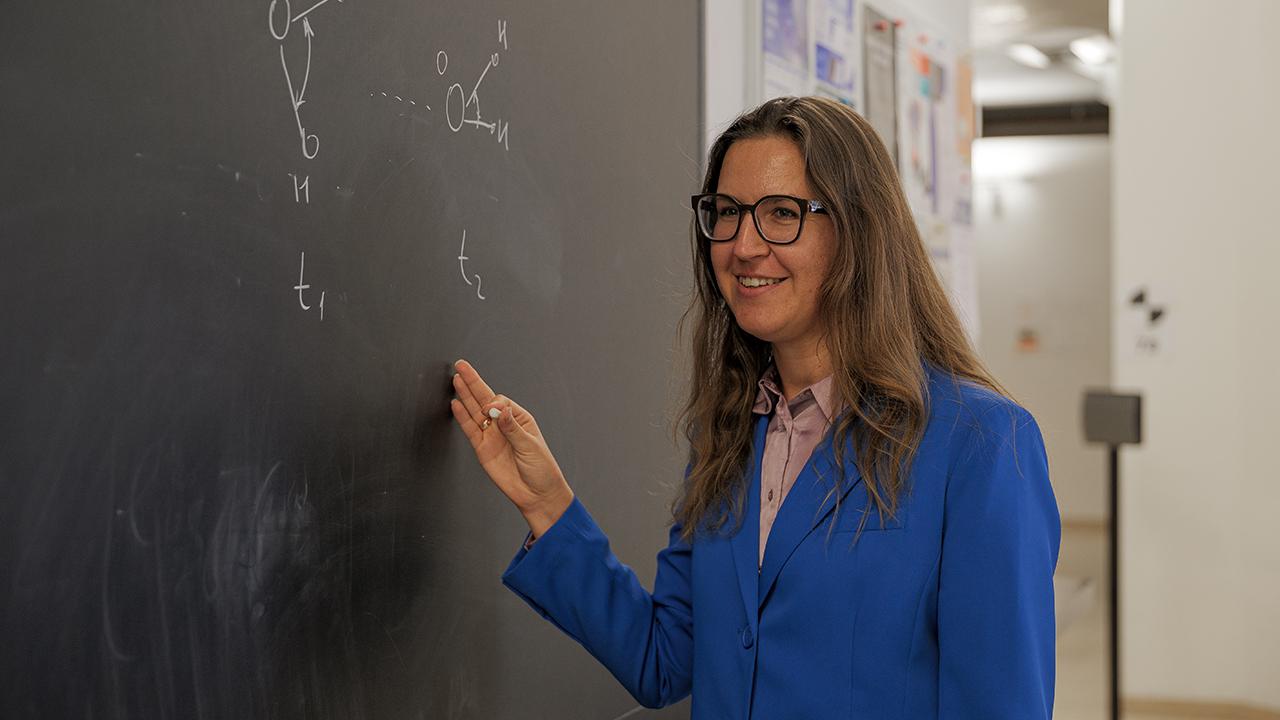
Nataliia Manko arrived at ICTP from Ukraine in June 2022. Upon joining the ICTP community, she contributed her programming skills to a research project that has resulted in a paper currently under review by one of the most important international science journals. With a newly-found enthusiasm in research, and despite the challenges her family has been going through, she has recently joined the University of Trieste as a postdoctoral researcher.
Manko arrived at ICTP from Ukraine just a few months after the start of the Russian invasion of Ukraine, thanks to the intermediation of Ali Hassanali, Senior Researcher at ICTP. In her home country, she was a senior lecturer at Sumy State University, located in a small city in the north-eastern part of Ukraine, that was surrounded by the Russian army at the beginning of the war. “Those first months were really hard and as soon as the territory was liberated in April 2022, I started looking for ways to leave the country with my two children,” she explains.
Manko then contacted Ali Hassanali, a research scientist at ICTP, whom she had met and collaborated with about eight years before, while she was a PhD student in Ukraine. Acting in concert with the ICTP Programmes and Advancement unit, Hassanali operated quickly to have Manko come to ICTP, first as a TRIL fellow and then, once the Centre was able to secure specific funding from the Simons Foundation, as a postdoctoral researcher.
“I arrived in Trieste with my two kids, who at the time were six and two years old, and with my mother. None of us spoke Italian, but with the help of many people at ICTP I was soon able to find an accommodation and a school for my children who had to adapt to a country that was completely new to them,” Manko explains.
After her PhD, Manko had found a permanent position as a lecturer at her home university but during the past few years, while on maternity leave, she had also trained as a programmer. At ICTP, she took up a collaborative project drawing on her skills in software development. “We set out to investigate one of water’s most peculiar properties: the presence of a second critical point in supercooled water involving a transition between a high-density and low-density phase,” Hassanali, who led the collaboration, recounts.
“Nataliia refined our collection of numerical tools into a very efficient and modular Python script that automatically identified changes in long-range orientational order and hence polarization within the low-density phase. If these features end up being true, it could open up new experimental and theoretical directions to search for the second critical point in water using dielectric probes,” Hassanali continues.
These findings are so striking that they resulted in a publication currently under review at the prestigious journal Proceedings of the National Academy of Sciences (PNAS). “Nataliia is an extraordinary example of a researcher who, despite coming from a distressed region, in a very short time was able to work hard and put her skills to service to a collaboration that also resulted in an important research output,” Hassanali concludes.
With still much uncertainty in the future of Ukraine, Manko does not know when and if her family will be able to re-settle in Ukraine, but her experience at ICTP has made her confident that she can find her own way in science and that more opportunities will come her way. “Being fully immersed in the international community of ICTP and feeling that I could contribute in many ways helped me go through the difficulties of being away from my husband and with my country at war,” Manko says, adding “Now I know that there are many possibilities out there, especially for physicists like me. Trieste is a really good place to do science, and my children like it here, we’ll see what the future brings.”
















